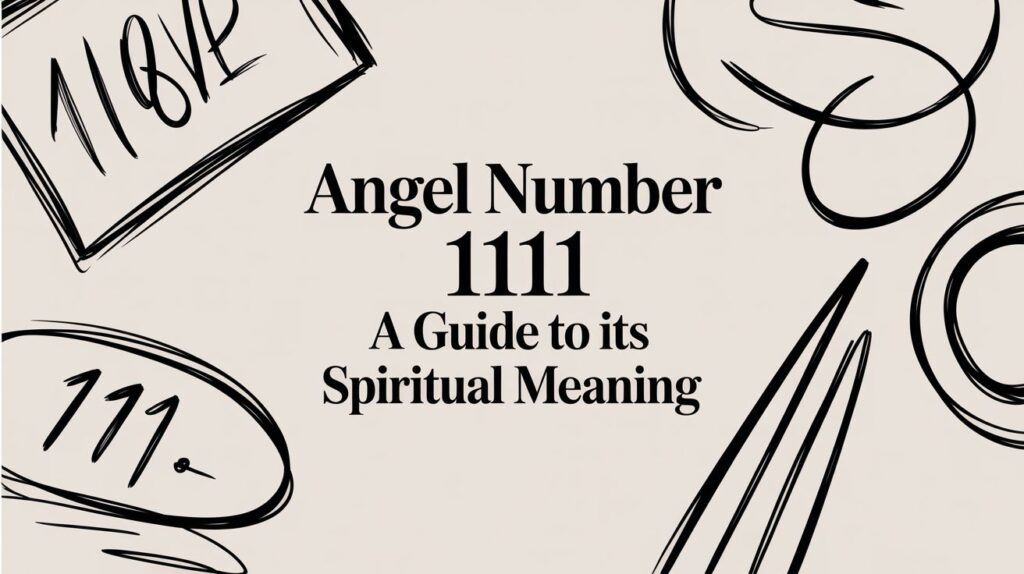The Darkest Wisdom: All of Dostoevsky’s Philosophy Explained to Sleep To

Fyodor Dostoevsky, a name synonymous with profound psychological insight and philosophical depth, walked the streets of 19th-century St. Petersburg not just as a novelist, but as a philosopher, psychologist, and prophet. His works anticipated many of the greatest discoveries of the 20th century, from Freud’s exploration of the unconscious to the existentialists’ declaration that existence precedes essence. Dostoevsky’s novels and stories offer unparalleled insights into human nature, grappling with the deepest questions that have haunted humanity since the dawn of time: Why do we suffer? What does it mean to be free? How can we find meaning in an apparently meaningless universe? What is the relationship between good and evil? Can we create a perfect society? Does God exist, and how do we explain innocent suffering?
Dostoevsky’s philosophical journey was forged in the crucible of personal suffering. He faced a death sentence, endured hard labor in Siberia, battled epilepsy and gambling addiction, and lived in poverty. This intimate knowledge of suffering lent his insights an authenticity that purely academic philosophers could never achieve. Yet, he was also a man of immense intellect, deeply engaged with the philosophical, theological, and political currents of his time. He saw the dangerous trajectory of materialism, atheism, socialism, and scientific rationalism, dedicating his life to warning humanity and pointing toward a different path.
His philosophy is not a dry academic theory but a living, breathing exploration of the human soul, dramatized through unforgettable characters and haunting stories. It is a philosophy born from suffering, refined by genius, and offered as a gift to anyone willing to grapple with the deepest truths of human existence.
Key Takeaways
- Human Freedom is Sacred and Terrible: Dostoevsky viewed freedom not as a political concept but as the metaphysical foundation of human existence, the terrifying ability to choose between good and evil, even against one’s own self-interest. We are condemned to be free, and this burden is the source of anxiety and existential terror.
- The Underground Mind: He depicted the modern consciousness as alienated, paralyzed by excessive self-awareness, and incapable of genuine connection or action. This "underground man" represents the neurotic individual trapped in a cycle of overthinking and self-consciousness.
- The War Against Rationalism: Dostoevsky critiqued the 19th century’s faith in reason and science, arguing that they fundamentally misunderstood human nature, which is driven by irrational emotions and spiritual needs, not just logic. He warned that materialism leads to nihilism and the devaluation of human life.
- The Psychology of Evil: Evil, for Dostoevsky, originates not from ignorance or social conditions but from the human heart itself. It is an inevitable consequence of freedom, and its potential exists within everyone.
- Innocent Suffering and Rebellion: The problem of innocent suffering, particularly the suffering of children, tormented Dostoevsky. His character Ivan Karamazov’s rebellion against God stems from the moral impossibility of accepting a universe that permits such agony.
- Freedom vs. Security: The Grand Inquisitor parable illustrates the eternal tension between the burden of freedom and the desire for security, predicting the appeal of totalitarian regimes that offer comfort and certainty at the cost of liberty.
- Russian Orthodoxy’s Unique Path: Dostoevsky saw Russian Orthodoxy as preserving the authentic Christian spirit of humility and suffering, contrasting it with what he viewed as the corrupted, power-seeking nature of Western Christianity.
- Love as Ultimate Reality: Love, in its most profound sense, is the cosmic principle that holds the universe together, manifesting in suffering and sacrifice. It is the redemptive force that can transform even the darkest souls.
- Prophecy of Totalitarianism: He accurately predicted the rise of totalitarian movements, understanding their roots in the collapse of traditional beliefs and their appeal to those seeking meaning and purpose in a secularized world.
- The Birth of Existentialism: Dostoevsky explored themes of absurdity, freedom, anxiety, and the search for authentic selfhood long before existentialism became a formal philosophical movement, grounding his ideas in a spiritual struggle.
- The Unconscious Mind: Decades before Freud, Dostoevsky mapped the hidden drives and unconscious conflicts that motivate human behavior, revealing the complex, often contradictory nature of the human psyche.
- Rejection of Western Civilization: He believed Western civilization’s embrace of rational materialism and individualism led to spiritual emptiness, advocating for a "return to the soil" rooted in traditional Russian Orthodox values.
- The Eternal Struggle: The core of Dostoevsky’s philosophy is the ongoing battle between faith and doubt, and the transformative power of suffering, offering a vision of humanity that is both deeply challenging and ultimately redemptive.
The Sacred Foundation Of Human Freedom
For Dostoevsky, freedom wasn’t about political rights or economic systems. It was the very essence of human existence, what separates us from animals and machines. It’s the terrifying, precious gift that allows us to choose between good and evil, to act against our own self-interest, even to destroy ourselves for no rational reason. We can’t give up this freedom, even when we try to surrender it to authority. This freedom haunts every moment, making us "condemned to be free." Without it, goodness would be meaningless; a robot programmed to be good isn’t morally praiseworthy. Only a being who could choose evil but chooses good deserves moral credit. However, most people find this burden too much. They escape it by surrendering to leaders, adopting rigid ideologies, or seeking distractions. This creates a fundamental tragedy: the very thing that makes us human is what we most want to escape. Dostoevsky illustrates this with the "underground man," who sabotages his own happiness simply to prove he’s not a machine programmed for it. He’d rather suffer as a free being than be happy as a slave. This perversity means any system trying to perfect humans by removing free choice is doomed to fail.
But Dostoevsky also shows us positive freedom through characters like Alyosha Karamazov and Prince Myshkin. They freely choose goodness, compassion, and self-sacrifice, not because they’re programmed to, but through immense spiritual strength and courage. This higher freedom isn’t easy; it requires willingness to suffer and a constant choice, moment by moment. It’s a spiritual category, coming not from external freedom but internal grace – the freedom to love, forgive, and hope even when it seems impossible. Suffering, Dostoevsky argued, is often the only way we learn to exercise freedom responsibly. It breaks down our illusions, forces us to confront deep questions, and opens our hearts to redemption.
The Underground Mind And Modern Consciousness
Dostoevsky’s "underground man" is the archetypal figure of modern alienation. This character, a former civil servant who withdraws from society, is a prophetic vision of consciousness in the modern world – a man whose intelligence has become his curse, paralyzing him with self-awareness. He’s "sick" with excessive consciousness, seeing the futility of existence and unable to connect naturally with others. Unlike people in earlier ages who acted on instinct or faith, the underground man is exposed to modern thought and cannot accept anything without endless analysis. He suffers from "analysis paralysis," knowing what he should do but being unable to act because he overthinks every motive and consequence.
This excessive consciousness also destroys his ability to feel genuine emotions. Every feeling is dissected, critiqued, and distorted until the original emotion is lost, replaced by self-hatred or resentment. He becomes alienated from himself, his mind constantly observing and judging his own thoughts and feelings. This internal division makes authentic self-expression impossible. Socially, he’s crippled by anxiety, interpreting every interaction as rejection. He desperately wants connection but his self-consciousness makes it impossible, leading to isolation and elaborate theories justifying his solitude. He exhibits cognitive dissonance, holding contradictory beliefs and desires, acting irrationally despite valuing reason. His mind is modernized, but his heart yearns for meaning, connection, and transcendence. Dostoevsky suggests this crisis is ultimately spiritual, requiring a reorientation of the soul towards something greater than the ego, a rediscovery of wonder and reverence, achievable only through grace.
The War Against Rationalism And Scientific Materialism
Dostoevsky saw the 19th century’s faith in reason, science, and utopian social planning as a dangerous delusion leading humanity toward spiritual catastrophe. Rationalists assumed people were logical beings driven by self-interest, believing that improving education and social conditions would automatically fix human behavior. Dostoevsky argued this was a catastrophic misreading. Humans are not primarily rational; we are emotional, spiritual, and often irrational, acting against our own interests for complex psychological reasons. Characters like Raskolnikov (murder for theory), the underground man (sabotaging happiness for freedom), and Ivan Karamazov (rejecting God due to suffering) demonstrate this. Their actions are driven by deep psychological needs, not rational calculation.
This insight has dire implications for utopian schemes. If people don’t behave rationally, rational planning fails. If unconscious forces drive behavior, education alone won’t suffice. If people choose suffering for existential reasons, material improvements won’t guarantee contentment. Dostoevsky argued that excessive reliance on reason actually worsens problems by cutting people off from their emotional and spiritual depths, leading to alienation and a loss of meaning. Scientific materialism is even more dangerous. Viewing humans as mere machines devalues dignity and responsibility. If behavior is determined by genetics and neurology, concepts like free will and morality become meaningless, leading to nihilism – the belief that nothing has ultimate value. This worldview justifies ruthlessness and exploitation, paving the way for totalitarianism. Dostoevsky believed that rationalism and materialism fail to satisfy deep human needs for meaning, beauty, and love, leaving people spiritually starved. His alternative wasn’t irrationalism but a balance of reason with faith, emotion, and spiritual intuition, often forged through suffering, which breaks down pride and opens us to grace and transformation.
The Psychology Of Evil And Human Darkness
Dostoevsky’s most disturbing insight was that evil doesn’t primarily come from ignorance or bad circumstances, but from the human heart itself. In 19th-century Russia, intellectuals believed human nature was good and evil stemmed from corrupt institutions. Dostoevsky, having witnessed extreme cruelty in a Siberian prison camp, knew better. He saw criminals who committed crimes not out of necessity, but out of choice – some for the thrill, others for self-assertion, and some to experience the ultimate transgression. What disturbed him most was that these criminals were recognizably human, possessing the same capacity for reason and morality as anyone else. This meant the potential for evil existed in everyone.
We aren’t blank slates; we have contradictory impulses, including a genuine impulse toward evil. Every person holds the capacity for both saintliness and criminality. Which path we take depends on our moral choices. Raskolnikov in Crime and Punishment murders not out of poverty, but to prove he’s extraordinary enough to transcend morality. His rationalizations hide a deeper psychological need for power and self-assertion. Dostoevsky shows how intellectual sophistication can mask moral blindness, a dangerous combination seen in many modern movements. Evil often arises not from dramatic failures but from small, gradual compromises: lies, selfishness, ignoring injustices. These erode moral judgment, leading to numbness and enabling serious evil. Smerdyakov in The Brothers Karamazov, shaped by cynicism and hypocrisy, develops a nihilistic philosophy justifying his father’s murder. Ultimately, Dostoevsky believed evil is an inevitable consequence of human freedom. The freedom to choose good inherently includes the freedom to choose evil. While we must combat evil, we shouldn’t expect to eliminate it entirely. Attempts to do so through social engineering often create worse evils, as seen in Demons, where revolutionary ideals lead to terror and destruction. The only realistic response, Dostoevsky argued, is individual moral and spiritual transformation – confronting the capacity for evil within ourselves and struggling against it.
The Problem Of Innocent Suffering And Ivan’s Rebellion
Few philosophical problems tormented Dostoevsky more than the existence of innocent suffering. How could a loving, all-powerful God permit children to be tortured and killed? How could divine justice exist in a world filled with undeserved pain and random cruelty? While theologians offered explanations about free will or divine providence, Dostoevsky, intimately familiar with suffering, presented the problem in its starkest, most devastating form. Ivan Karamazov, in The Brothers Karamazov, articulates this rebellion most powerfully. A brilliant intellectual, Ivan collects horrific accounts of children being tortured – a five-year-old beaten and forced to eat excrement, a boy torn apart by dogs, babies impaled on bayonets. These aren’t abstract examples but real suffering that renders theological explanations meaningless.
Ivan’s question is simple yet devastating: How can we accept a God who hears such prayers and does nothing? He rejects any explanation that justifies such suffering, finding any cosmic harmony built on innocent agony morally obscene. He doesn’t necessarily reject God’s existence but rebels against the universe God created, refusing to accept a ticket to a world where such suffering is permissible. This is a moral argument against the universe itself. Ivan’s rebellion culminates in "The Grand Inquisitor" parable. Here, Jesus returns, but the Grand Inquisitor arrests him, arguing that Jesus wrongly offered humanity freedom, a burden most cannot bear. The Church, he claims, has corrected this by offering security, certainty, and relief from responsibility. The Inquisitor reinterprets Satan’s temptations: bread (material security), miracle (certainty), and dominion (authority). Jesus rejected these, but the Inquisitor argues most people need them to live. The Church provides them, making humanity happier, though at the cost of freedom. This parable highlights the tension: does God’s love permit suffering for the sake of freedom, or is that a form of cosmic cruelty? Dostoevsky doesn’t offer easy answers but shows the human cost of Ivan’s rebellion – nihilistic despair. The alternative is Alyosha, who trusts God’s goodness despite the evidence, responding to suffering with love and compassion, not intellectual analysis.
The Grand Inquisitor And The Choice Between Freedom And Security
Ivan Karamazov’s "Grand Inquisitor" parable, a story within a story, is perhaps Dostoevsky’s most potent political allegory. Set in 16th-century Spain, Jesus returns and performs miracles, only to be arrested by the Grand Inquisitor, the head of the Church. The Inquisitor visits Jesus in prison, explaining why the Church must reject him. His argument is chillingly logical: Jesus offered freedom, but humanity is too weak and ignorant to bear it. Most people crave security, certainty, and relief from the burden of choice. The Church, he claims, has corrected Jesus’s mistake by providing what people truly want: material security (bread), undeniable miracles (certainty), and strong authority (dominion). By rejecting Satan’s temptations in the wilderness, Jesus doomed most people to suffering and doubt.
The Inquisitor argues the Church, by embracing these temptations, has created a happier, more peaceful humanity. They’ve made the choices for people, provided authoritative answers, and eliminated moral ambiguity. This system, he contends, is more loving than Jesus’s original plan, which only suited a spiritual elite. The parable resonates because it taps into a cynical but plausible view of human nature: many prefer security over freedom, certainty over truth, and strong leaders over democratic responsibility. Dostoevsky wrote this decades before totalitarianism, yet it perfectly describes its appeal. Fascist and communist regimes offered bread, miracle (ideology), and authority, seducing millions with relief from freedom’s burden. The parable warns that democracy is fragile because it demands difficult choices and responsibility, which many would rather avoid. The Inquisitor’s vision is a psychological appeal to authoritarianism. However, the parable doesn’t end with the Inquisitor’s monologue. Jesus silently kisses the old man, an act of love that moves the Inquisitor but doesn’t change his mind. He releases Jesus, telling him never to return. This suggests the choice between freedom and security can’t be resolved by argument. It’s a fundamental decision about human potential. Jesus represents faith in freedom; the Inquisitor, a compassionate realism about human limitations. Dostoevsky shows this choice is always before us, individually and collectively, with profound consequences.
Russian Orthodox Christianity Versus Western Religion
Dostoevsky believed the conflict between different forms of Christianity was a battle for humanity’s soul. He saw Western Christianity (Catholic and Protestant) as having betrayed Christ’s original message by pursuing worldly power and intellectual respectability, losing touch with spiritual essence. Only Russian Orthodoxy, he argued, preserved the authentic Christian spirit of humility, suffering, and mystical union with God. His critique of Catholicism was harsh; he viewed the Catholic Church as a continuation of the Roman Empire, prioritizing political power over spiritual truth. It had replaced love and humility with law and coercion, rational theology with mystical experience. The Grand Inquisitor, for Dostoevsky, symbolized Catholicism – genuinely believing it serves humanity by removing the burden of spiritual freedom, but ultimately betraying Christ’s message by removing freedom itself.
He saw Protestantism as even more problematic, carrying Western Christianity’s logic to its extreme. Rejecting papal authority led to individualism and relativism, making religion a purely private matter and paving the way for secularization and atheism. Socialism, in his view, was the ultimate Western heresy, attempting to create heaven on earth through human effort, eliminating God and replacing Him with human reason. Against these deviations, Dostoevsky championed Russian Orthodoxy. It never sought worldly power, preserved mystical traditions, and embraced suffering as essential for spiritual growth. Orthodox believers understood the spiritual life as humility, suffering, and union with God, not intellectual achievement. They saw the Church as a community of sinners seeking redemption. This emphasis on suffering, humility, and kenosis (self-emptying love) was central. Characters like Alyosha Karamazov and Father Zosima embodied these ideals, demonstrating spontaneous love and compassion. Dostoevsky’s vision also carried a dangerous nationalist undertone: Russia, through Orthodoxy, had a messianic mission to save the world from Western materialism. This combination of spiritual insight and nationalist fantasy had profound, and at times, terrible consequences.
Love As The Ultimate Reality And Redemptive Force
At the heart of Dostoevsky’s philosophy lies a radical claim: love is not just an emotion but the fundamental force holding the universe together, the ultimate reality. This isn’t sentimental love but a cosmic principle manifested in suffering, sacrifice, and bearing the pain of others. For Dostoevsky, this ultimate love is identical with God, and the capacity for it makes humans redeemable. His own experiences in Siberia, witnessing both cruelty and unexpected compassion, convinced him that beneath selfishness lies a deeper reality of universal love. True love, paradoxically, emerges through accepting suffering. Those who avoid pain can’t develop the spiritual depth for genuine love. Love often appears as tragedy – Prince Myshkin’s pure, selfless love is tragic because the world isn’t ready for it, yet it plants seeds for the future. Alyosha Karamazov represents a more practical love, responding with specific acts of compassion. Characters like Raskolnikov and the underground man, trapped in their subjectivity, lack this genuine connection, their intelligence becoming a prison. Dostoevsky saw modern civilization, with its emphasis on individualism and materialism, as fostering isolation, making true love almost impossible. The alternative is sobornost, a Russian Orthodox concept of spiritual unity through love, a mystical participation in divine love that transcends ego boundaries. Father Zosima embodies this, teaching that all are responsible for each other. However, Dostoevsky didn’t present love as an easy solution. True love requires sacrifice and often leads to apparent failure. It doesn’t eliminate evil but transforms its meaning. He also warned against corrupted love: possessive, sentimental, or ideological love. The ultimate test is forgiveness – loving enemies and seeing the divine in everyone. This capacity for love and forgiveness is the mark of human dignity and the answer to life’s meaning.
The Prophecy Of Totalitarianism
Writing decades before fascism and communism, Dostoevsky accurately predicted the rise and appeal of totalitarian movements. In Demons, he envisioned revolutionary terrorism, anticipating the tactics and psychology of 20th-century extremism. His insight went deeper: he understood the spiritual and psychological roots of totalitarianism, seeing it emerge not from traditional authoritarianism but from the collapse of traditional beliefs. Unlike old tyrants who ruled by force, modern totalitarians claim to represent the people, promising to eliminate suffering and create perfect societies. This makes their tyranny more insidious. Dostoevsky linked this to materialism (humans as machines to be controlled), rationalism (intellectuals imposing their plans), and atheism (moral values as arbitrary constructs). This ideology justified treating humans as raw material, overriding individual preferences for supposed collective goals. The result: unprecedented cruelty justified by abstract ideals. Revolutionary movements, he noted, appeal to educated youth who’ve lost faith but still crave meaning, functioning as substitute religions. But these movements inevitably become tyrannical. The logic that justifies revolution also justifies control. Shigalov in Demons exemplifies this: his pursuit of perfect equality leads to eliminating individual freedom, creating an elite ruling a subservient mass. Totalitarianism promises liberation but delivers enslavement, beginning with humanitarian goals but ending in atrocities. This isn’t a corruption of good intentions but the inevitable outcome of denying human dignity and transcendent truth. Dostoevsky also foresaw terror not just as a tool but as psychological manipulation, breaking down resistance by destroying independent thought and moral judgment. This process anticipates modern psychological manipulation. Ultimately, totalitarianism is religious in nature, demanding faith and offering salvation, creating populations satisfied with their oppression because their capacity for independent thought is destroyed. It’s the triumph of the Grand Inquisitor’s vision over Christ’s.
The Birth Of Existentialism And The Divided Self
Dostoevsky was a precursor to existentialism, exploring its core themes decades before the movement formally emerged. Characters like the underground man, Raskolnikov, and Ivan Karamazov grappled with the absurdity of existence, the burden of freedom, the anxiety of choice, and the search for authentic selfhood in a meaningless universe. However, Dostoevsky’s existentialism was distinct; it was rooted in a profound spiritual struggle, not a rejection of spiritual possibilities. For him, confronting meaninglessness was the start of a deeper search for transcendent meaning.
The underground man embodies the existentialist hero: acutely aware of his radical freedom and responsibility, yet paralyzed by it. He recognizes human values are constructs and reason is insufficient, but instead of embracing freedom, he retreats into isolation. This shows what happens when existential insights are divorced from a spiritual framework; freedom becomes a curse. Dostoevsky also masterfully depicted the "divided self." His characters are not unified personalities but battlegrounds of conflicting impulses. Raskolnikov contains both saint and sinner; Ivan, believer and atheist; the underground man, critic and failure. This reflects the modern psychological understanding of personality as fragmented. This division creates "authenticity problems": which self is true? Dostoevsky’s characters grapple with this, trying to achieve unified selfhood, often failing because the division is inherent to consciousness. Yet, this division is also an opportunity: self-awareness enables moral growth, and the capacity for self-observation allows for self-knowledge and repentance. The freedom to choose evil also means the freedom to choose good. The existential tension is heightened by the awareness of mortality. If death makes everything meaningless, why do any choices matter? Yet, if life is short, every choice is urgent. Prince Myshkin, with his experience of the "eternal moment," lives with complete presence but struggles in ordinary reality. Dostoevsky’s influence on later existentialists like Kierkegaard, Nietzsche, and Sartre is undeniable, though often unacknowledged. His work offered a more hopeful, spiritually grounded existentialism, suggesting that confronting meaninglessness can lead to authentic faith, not just nihilism.
The Psychology Of The Unconscious And Human Motivation
Long before Freud, Dostoevsky delved into the unconscious mind, revealing hidden drives and repressed desires that motivate human behavior. His novels are psychological case studies, anticipating psychoanalytic theory. He understood that people rarely act for the reasons they claim; their conscious explanations often mask deeper, unconscious motivations. Raskolnikov’s murder isn’t just about theory but a need for power; the underground man’s isolation isn’t about others’ inferiority but fear of rejection; Ivan Karamazov’s atheism stems from an emotional inability to accept innocent suffering. This insight challenged the era’s assumptions about human nature, suggesting rational arguments and moral exhortations are often ineffective if unconscious drives prevail.
Dostoevsky brilliantly depicted defense mechanisms: rationalization, projection, denial, compensation, and sublimation. The underground man, aware of his own mechanisms, is still trapped, his self-analysis becoming a pathology. He anticipated how trauma influences adult behavior (Smerdyakov’s hatred, Nastasya Filippovna’s self-destruction) but never presented it as a complete excuse, preserving the possibility of moral responsibility and redemption. Guilt and conscience are powerful forces, driving self-punishment (Raskolnikov’s illness, the underground man’s misery) but can also be pathological, leading to self-hatred. True redemption, he suggested, requires transformation through grace, not just eliminating guilt. His analysis of love and sexuality revealed psychological projections and the use of others to fulfill internal conflicts. Characters like Myshkin and Dmitri Karamazov are driven by complex unconscious needs. Dostoevsky also explored the will to power, the need for control compensating for inadequacy, seen in Raskolnikov’s theories and Ivan’s atheism. Crucially, he understood suffering’s psychological function: it can validate one’s sense of being special, provide meaning, appease guilt, and foster spiritual growth. His work offers a form of psychological healing, providing corrective emotional experiences that help readers understand themselves and maintain hope for transformation.
The Rejection Of Western Civilization And The Return To Soil
Dostoevsky believed Western civilization, with its focus on rational materialism, individual autonomy, and technological progress, was leading humanity toward spiritual catastrophe. He saw Western societies as materially prosperous but spiritually empty, morally confused, and socially fragmented. Russia, he argued, could avoid this fate by rejecting Western ideas and embracing its own roots: Orthodox Christianity, traditional peasant values, and a "return to the soil."
His critique of the West was sweeping. Western Christianity, he felt, had become corrupted by its alliance with political power and rational theology, losing its mystical essence. Western philosophy had abandoned truth for analysis, politics for artificial contracts, and economics for mere transactions. The core error, he believed, was the assumption that human reason alone could solve all problems, ignoring the irrational aspects of human nature. This led to systems that failed to account for deep psychological needs. Dostoevsky’s proposed alternative, the "return to the soil," wasn’t just about rural life but a spiritual and cultural renewal. It emphasized sobornost (mystical community), concordia (spiritual consensus), humility, and suffering love – values he saw preserved in the Russian peasantry. His Siberian prison experience showed him that even criminals possessed a spiritual depth often lacking in the educated elite. He believed the Russian people held a unique spiritual wisdom that could save the world. However, he also recognized Russia’s own corruption by Western influences. True renewal required not just rejecting foreign ideas but a conscious spiritual transformation of education, culture, and social organization, prioritizing Orthodox principles over Western models. This path, he warned, was crucial to avoid humanity’s descent into spiritual death, where science and technology would advance, but humans would become less human, souls more empty. Russia’s mission, he felt, was to show the world a path to modernity that was also spiritual, a balance of progress with tradition.
The Eternal Struggle: Faith, Suffering, And Dostoevsky’s Vision For Humanity
At the core of Dostoevsky’s philosophy lies the eternal struggle between faith and doubt, a battle reason alone cannot resolve. Coupled with his revolutionary understanding of suffering as the crucible for spiritual growth, these insights form the bedrock of his enduring legacy. This isn’t just an intellectual debate about God’s existence; it’s an existential crisis. Suffering, for Dostoevsky, isn’t an accident but a transformative force. His own life—imprisonment, loss, illness—tested his faith profoundly, teaching him that extreme suffering could lead to spiritual insight. He witnessed both immense cruelty and extraordinary kindness among prisoners, realizing that deep wisdom and compassion often emerge from unavoidable pain.
His greatest characters embody this struggle. Ivan Karamazov presents a powerful case for atheism, unable to accept a God who permits innocent suffering. Yet, his rebellion leads to nihilism. His brother, Alyosha, chooses faith despite contradictory evidence, freeing him to act with love and compassion. Characters like Sonia Marmeladova and Father Zosima exemplify redemptive suffering: Sonia maintains purity despite degradation, and Zosima teaches shared responsibility for suffering, transforming pain into wisdom. However, suffering can also be destructive, as seen in the underground man’s bitterness or Smerdyakov’s murderous rage. The key is the spiritual attitude: redemptive suffering requires "active love"—bearing others’ burdens willingly. Prince Myshkin embodies this Christ-like innocence, though his goodness is tragically ineffective in a flawed world. Dostoevsky’s prophetic vision extends to politics: the Grand Inquisitor’s desire for security over freedom foreshadowed totalitarianism. His psychological insights anticipated discoveries about the unconscious, the divided self, and the limitations of secular psychology. His core message is that true healing is spiritual, not just technical. In a world losing traditional meaning, his work offers hope, showing that faith is an existential choice, a trust in ultimate meaning despite doubt. Dostoevsky’s legacy is his unflinching honesty about life’s complexity, combined with ultimate hope for human transformation. He challenges us to face reality, embrace freedom’s cost, love unconditionally, and forgive, demonstrating that even in darkness, love, truth, and spiritual reality can prevail, offering a path to authentic meaning and fulfillment.








Responses